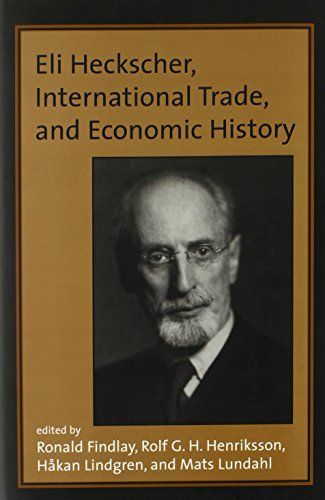
Eli Heckscher, International Trade, and Economic History
Eli Heckscher (1879-1952) is celebrated for his contributions to international trade theory, particularly the factor proportions theory of comparative advantage in international trade known as the Heckscher-Ohlin theory. His work in both economic theory and economic history is notable for combining theoretical insights with a profound knowledge of economic history and the history of economic thought. In this volume, leading international economists assess the importance of Heckscher's work and its relevance to the contemporary practice of economic history.The contributors first discuss Heckscher's efforts to forge the discipline of economic history by combining both the historian's careful evaluation of sources and the economist's rigorous models. The Heckscher-Ohlin theory of factor proportions is described and tested empirically. Contributors then apply the theory to historical material, including Mediterranean trade in Biblical times, the economic effects of two periods of plague eight centuries apart, and tariff policy in 35 countries from 1870 to 1938. Heckscher's masterly work on mercantilism, the Continental Blockade, and Swedish economic history is also described and appraised in light of recent historical research.Contributors:Benny Carlson, François Crouzet, Lance E. Davis, Stanley L. Engerman, Ronald Findlay, Harry Flam, Rolf G. H. Henriksson, Eva, Einar, Ivar, and Sten Heckscher, Douglas A. Irwin, Ronald W. Jones, Deepak Lal, Håkan Lindgren, Mats Lundahl, Lars Magnusson, Joel Mokyr, Mats Morell, Patrick O'Brien, Kevin H. O'Rourke, Bo Sandelin, Lennart Schön, Johan Söderberg, Peter Temin, Jeffrey G. Williamson